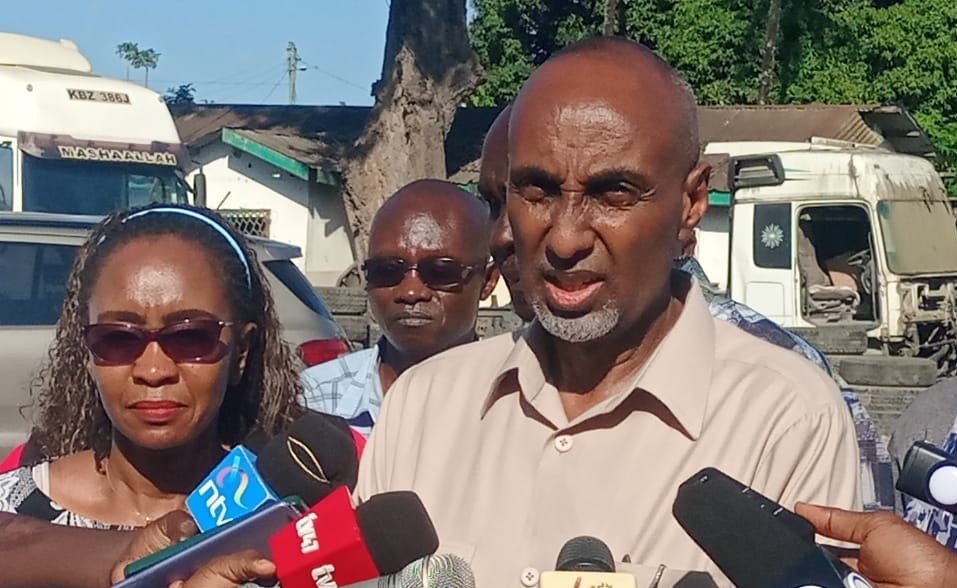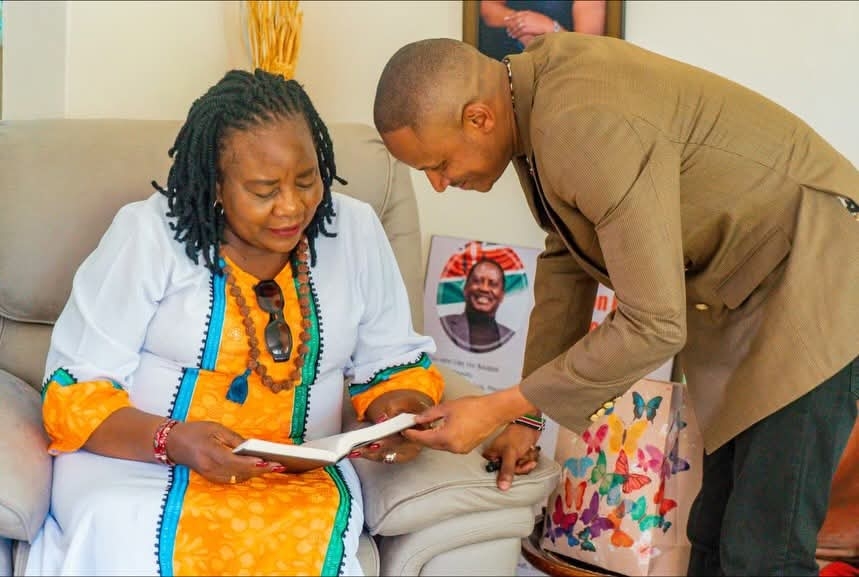Anita Mwadime was an introvert who kept away from groups and only kept the company of a trusted friend.
A school dropout, Mwadime did not know she would one day reconstruct her shattered dreams.
“I did not know that I could one day stand and speak to a huge crowd and convince them to change their ways,” Mwadime says.
After interacting with Knowledge in Our Talent of Art, a community-based organisation in Changamwe, Mombasa, she met Susan (not her real name).
Susan dropped out of school in Form Two, after she got pregnant.
She had stayed out of school for almost two years.
Equipped with knowledge from Kiota, Mwadime convinced Susan to rejoin school, reigniting her hope in life.
Kiota implements a programme called "Stronger communities on reproductive equity" which seeks to level the ground for both men and women by giving them equal access to health rights.
The programme, which has been running for the last two years, targets children and youth aged between 10 and 24 years.
Peer-to-peer learning is employed for those under 35.
Activities in the programme include youth forums (maskani talks), school-based guidance and counselling sessions and art groups.
Executive director Adam Shee said they have witnessed the programme's positive impact in Changamwe and will extend it by another two or three years.
“An increased number of youth now are seeking health services unlike before. There is also a general change of sexual behaviour and we see female youth now being more careful in how they behave in the presence of their male counterparts,” he said.
There had been deep-rooted stigma against females who interact with their male counterparts.
“This was especially so when it comes to the sexual health topic. In Changamwe, many parents did not want to see their daughters interact with other people’s sons in any way,” he said.
“This meant that as time went, the daughters became more curious and would want to experiment. These experiments in most cases led to unwanted pregnancies and diseases.”
Forced early marriages were also rampant in Changamwe, but were kept secret.
Kiota programs officer Isaac Andayi said many youth had little knowledge on reproductive health, which led to irresponsible behaviour.
Youth also suffered mental health issues but did not know how to deal with them.
Some had given up, making them vulnerable to peer influence and social vices like drug abuse and juvenile crime.
“Many of the youth had been having different problems that affect their mental state. They eventually think they have nothing to lose and they see themselves as hopeless,” Andayi said.
“That is why you see them easily influenced into crime and hooliganism.”
Discussions with county and national governments are ongoing to seek ways the youth can undergo counseling.
“These sessions need qualified professional psychologists to help them. These are not cheap services.”
Sometimes, youth came out in large numbers, overwhelming their budgets and ability to effectively address their needs, he added.
“This showed there are more people who have these social problems than we had estimated,” Andayi said.
Single and teen mothers suffered mental issues more than anyone else.
“The environment that some of these people lived in contributed a lot to their predicament. Some lived in single parent settings, in chang’aa dens, or even brothels, thereby picking up some of the habits they witnessed regularly,” he said.
Kennedy Micheni, the coordinator in charge of gender, adolescents and mental health, said there has been a significant decrease in teen pregnancies, early marriages and school dropout rates in the last one year.
He said Changamwe subcounty and Mombasa as a whole now is among the areas with the lowest prevalence of teen pregnancies in the country.
“Before the program, we were at 16 per cent prevalence, but as we speak now, we have dropped to 11 per cent,” Micheni said.
Other counties are now benchmarking with Mombasa to decrease prevalence.
“This shows that when these youth have mentorship and are mentally settled, they make wise decisions,” Micheni said.
Meru county has the highest prevalence of teen pregnancies at 22 per cent.
Ahmed Kombo, a teacher at Kwa Hola primary, said school dropout rates in Changamwe and Jomvu have dropped significantly since Kiota Organisation intervened.
The rate of teen pregnancies at his school also dropped.
“Kiota started their activities in my school and I feel they need more support from all stakeholders,” he said.
Eight organisations — two in Mombasa — implement the project, which is funded by DSW Kenya under the Hewlett Foundation.
















